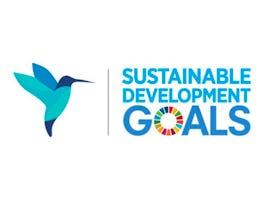SEO Certification: What It Is and How It Is Beneficial
October 23, 2024
Article






Instructors: Flemming Konradsen
Instructor ratings
We asked all learners to give feedback on our instructors based on the quality of their teaching style.













5,880 already enrolled
Included with 
(164 reviews)
(164 reviews)

Add to your LinkedIn profile
14 assignments




Add this credential to your LinkedIn profile, resume, or CV
Share it on social media and in your performance review


More than half of world’s population lives in cities while only 5% did so in the 18th century. The rapid urbanisation has resulted in for example inadequate infrastructure, physical inactivity, gentrification, air pollution, and growing numbers of slum dwellers. All factors challenging health and wellbeing of the people living in the cities. In addition, when addressing climate change it has become of paramount importance to look at mitigation and adaptation investments tailored to the urban context.
As stated in the Sustainable Development Goal 11 adopted by all United Nations member states in 2015, societies need to be at the forefront in the continuous management and design of urban spaces to secure that cities and human settlements are inclusive, safe, resilient and sustainable. In this course, you will learn about the key determinants of urban health including demography, climate change, air pollution, noise, transport systems, public and blue and green spaces, and policies and investments affecting sense of community and public safety. You will get a historical overview of the major trends in urban planning and meet a range of stakeholders in urban planning who will provide examples of innovative methods and people-centered approaches to create sustainable solutions. Finally, you will be provided with a series of resources to inspire you to help create awareness and action around an idea or sustainable solution in the field of urbanisation and health. The course has been developed (with support from EIT Health) in a partnership between the University of Copenhagen, Universidad Politécnica de Madrid and University of Coimbra. Researchers and stakeholders in urban planning will introduce you to cases from cities in Denmark, Spain, Portugal and many other urban settings across the world. The aim of the course is to further interdisciplinary knowledge on urbanisation and health. We plan for the courses to reach citizens and activists as well planners, practitioners and decision-makers with a professional interest in sustainable urban planning from countries around the world.
This module will provide you with an overview of the key determinants of urban health. We will take you on a journey mainly through the European history of urbanisation and urban planning to reflect on the way health concerns and wellbeing have been considered and how general trends here have influenced the design of cities all across the world. Finally, we will dive into the causes and effects of air pollution and noise, two of the major health hazards in today’s urban settings. We hope the readings and resources will inspire you to begin exploring your own urban setting in terms of e.g. density and different kinds of pollution.
5 videos6 readings4 assignments3 discussion prompts
The world population is undergoing major changes. The share of urban population is increasing, as does that of people aged 65 or over. In this module we will focus on the concept of ageing across the lifecycle, and on how different features of urban environment influence health and the ageing process. Furthermore, we will explore the phenomenon of gentrification and its impact on health in different segments of our populations. In the reading and resources section you will find shortcuts to databases and cases from different cities.
3 videos6 readings3 assignments2 discussion prompts
On many different levels evidence confirm how crucial the integration of elements of nature in the urban design is to sustain physical as well as mental health. In this module you will be introduced to blue and green planning as an instrument to promote health and mitigate and adapt to climate changes. We will look at the benefits of green space and small-scale urban farming from a community and health perspective. You will also meet examples of how new ways of designing public space motivates citizens to lead a daily physically active and healthy life. In the readings and resource section you will find more in depth material on nature based solutions and effects on climate change.
4 videos7 readings4 assignments2 discussion prompts
How can we align urban planning with UN’s Sustainable Development Goals? In an urban context, how can we bend the curve of obesity? How can we reduce mortality and disease associated with the layout of the urban space and namely the way we design our transport systems? In this module you will meet stakeholders who are globally engaged in the development and implementation of sustainable approaches to resolve some of the major health related challenges that cities are facing globally. Further, you will get access to tools and frameworks for your own use
3 videos5 readings3 assignments1 discussion prompt
Maybe you are already involved in activities that support a healthy and sustainable development in your own neighborhood or city, or even across cities. Or maybe you would like to get started or take action in a new way. Now is your chance to mature and consider how you can best convince others to engage in your idea! In the previous modules we have identified the key determinants to urban health and provided examples of prevailing methods to come up with sustainable solutions. We now add to the palette some overall principles and frameworks commonly used for innovation to improve health. You will also be introduced to some tools to effectively communicate your specific idea, including ways to visualize the data you build your arguments around. In the resource section you will find a variety of toolkits and design guides and we invite you to study each of them and consider which parts could be helpful to identify and come up with a suggestion for a sustainable solution to a specific problem you are engaged in.
3 videos1 reading1 discussion prompt
We asked all learners to give feedback on our instructors based on the quality of their teaching style.


Instructor ratings
We asked all learners to give feedback on our instructors based on the quality of their teaching style.















The University of Copenhagen is the oldest University in Denmark - founded in 1479, and with over 38,000 students and more than 9,000 employees. The purpose of the University is to conduct research and provide education to the highest academic level. Based in Denmark's capital city it is one of the top research institutions in Europe.


Universidad Politécnica de Madrid is the oldest and largest Spanish technical university, with more than 4.000 faculty members, 38.000 undergraduate students and 6.000 postgraduates in 21 Schools which cover most of engineering disciplines. More than 2,400 researchers carry out their activity at the UPM, grouped in 204 Research Groups, 19 Research Centers and 55 Laboratories. The intense collaboration with governmental bodies and industry guarantees that research at the UPM offers real solutions to real-world problems. Recently, European Commission has approved the EELISA (European Engineering Learning Innovation and Science Alliance) lead by Universidad Politécnica de Madrid in collaboration with other universities across Europe in order to reinforce the committment of European Universities towards the Sustainable Development Goals and the current social challenges of XXI century.


The University of Coimbra was founded in 1290 and constitutes a reference in higher education and R&I in Portugal, with academic reputation recognized worldwide. It includes eight faculties and over 30 research units, covering almost all study fields (Engineering, Technology, Life and Health Sciences, Architecture, Economy, Social Sciences, Arts and Humanities, Psychology, Pharmacy and Sports) as well as several bodies devoted to interdisciplinary research, arts and culture. UC offers advanced training programs in different areas that bind to technology, being considered by EC as one of the 20 most inspiring cases in Europe. Knowledge and technology transfer is at its core, resulting in successful initiatives, like IPN Incubator, TECBis- Business accelerator unit and Biocant, and in the creation of more than 200 spin-offs, most of them health-related.


EIT Health is a vast, vibrant community of world-leading health innovators backed by the European Union. Working across borders, our network connects approximately 150 world-class partner organizations, as well as entrepreneurs, start-ups, and SMEs from the worlds of business, research, education, and healthcare delivery. Our ambition is to enable people in Europe to live longer, healthier lives by transforming businesses and delivering new products and services that can progress healthcare in Europe and strengthen our economy.

Imperial College London
Course

Course

Course

Erasmus University Rotterdam
Course




164 reviews
84.33%
13.25%
1.80%
0%
0.60%
Showing 3 of 164
Reviewed on Jun 27, 2022
Grateful for this fulfilling journey in such a noble field!
Reviewed on Jul 7, 2022
The course was excellent, added a lot of information to my previous knowledge.
I thank all the professors and producers of this course.
Reviewed on Nov 16, 2021
The course is really good. I wish there was some type of written assignment where we could apply our learning



Unlimited access to 10,000+ world-class courses, hands-on projects, and job-ready certificate programs - all included in your subscription

Earn a degree from world-class universities - 100% online

Upskill your employees to excel in the digital economy
Access to lectures and assignments depends on your type of enrollment. If you take a course in audit mode, you will be able to see most course materials for free. To access graded assignments and to earn a Certificate, you will need to purchase the Certificate experience, during or after your audit. If you don't see the audit option:
The course may not offer an audit option. You can try a Free Trial instead, or apply for Financial Aid.
The course may offer 'Full Course, No Certificate' instead. This option lets you see all course materials, submit required assessments, and get a final grade. This also means that you will not be able to purchase a Certificate experience.
When you purchase a Certificate you get access to all course materials, including graded assignments. Upon completing the course, your electronic Certificate will be added to your Accomplishments page - from there, you can print your Certificate or add it to your LinkedIn profile. If you only want to read and view the course content, you can audit the course for free.
You will be eligible for a full refund until two weeks after your payment date, or (for courses that have just launched) until two weeks after the first session of the course begins, whichever is later. You cannot receive a refund once you’ve earned a Course Certificate, even if you complete the course within the two-week refund period. See our full refund policy.
Yes. In select learning programs, you can apply for financial aid or a scholarship if you can’t afford the enrollment fee. If fin aid or scholarship is available for your learning program selection, you’ll find a link to apply on the description page.

These cookies are necessary for the website to function and cannot be switched off in our systems. They are usually only set in response to actions made by you which amount to a request for services, such as setting your privacy preferences, logging in or filling in forms. You can set your browser to block or alert you about these cookies, but some parts of the site will not then work.
These cookies may be set through our site by our advertising partners. They may be used by those companies to build a profile of your interests and show you relevant adverts on other sites. They are based on uniquely identifying your browser and internet device. If you do not allow these cookies, you will experience less targeted advertising.
These cookies allow us to count visits and traffic sources so we can measure and improve the performance of our site. They help us to know which pages are the most and least popular and see how visitors move around the site. If you do not allow these cookies we will not know when you have visited our site, and will not be able to monitor its performance.
These cookies enable the website to provide enhanced functionality and personalization. They may be set by us or by third party providers whose services we have added to our pages. If you do not allow these cookies then some or all of these services may not function properly.